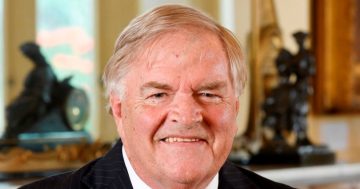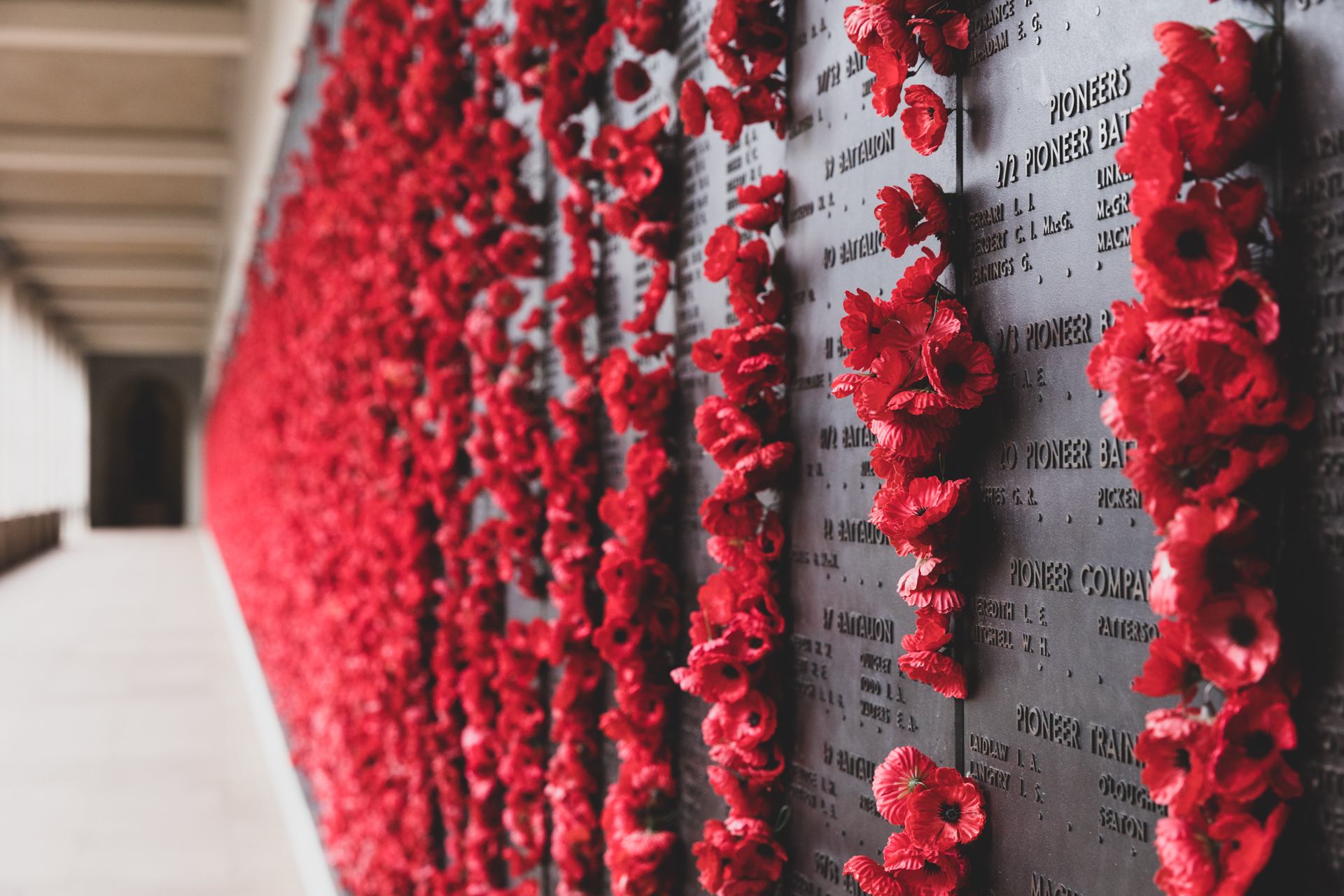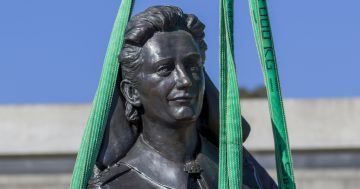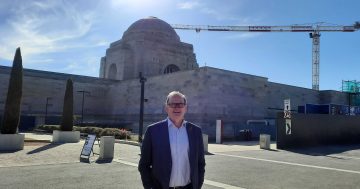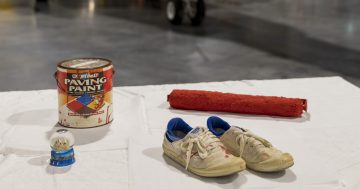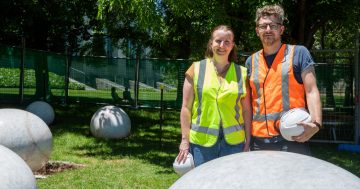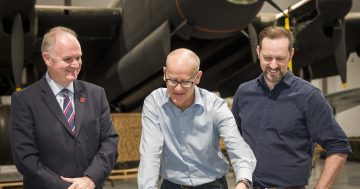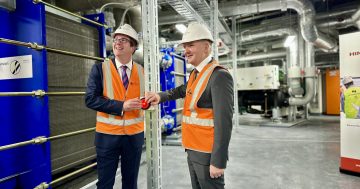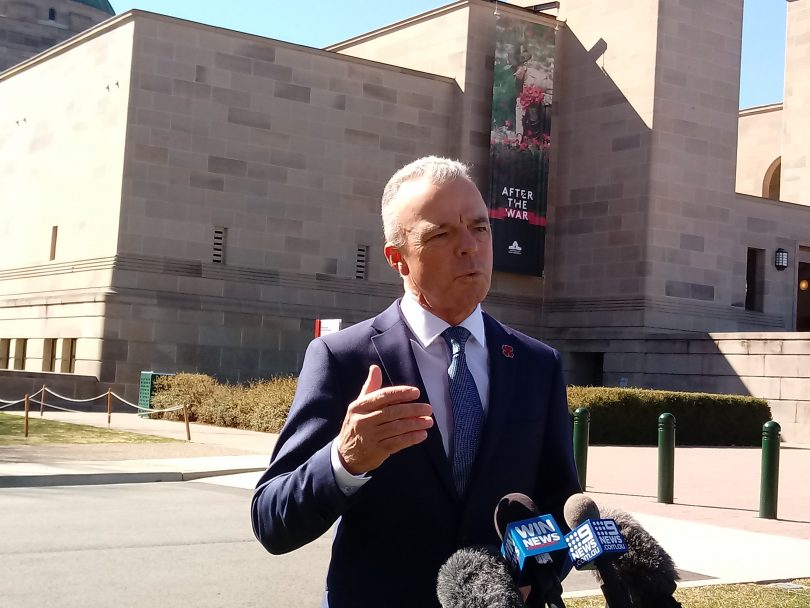
He’s back: Dr Brendan Nelson announcing his retirement as War Memorial Director in 2019. Photo: Region Media.
The return of Dr Brendan Nelson to the Australian War Memorial as Council Chair raises questions about the chain of command at the institution and who will actually be in charge, according to critics of the appointment.
The Memorial announced on Friday that its former Director would succeed media baron Kerry Stokes as Council Chair.
Director Matt Anderson said Dr Nelson would bring passion, commitment and knowledge to serve the Memorial in this strategic capacity.
“Dr Nelson demonstrated his outstanding commitment to the purpose of the Australian War Memorial and his support of veterans and their families during his seven years as Director,” Mr Anderson said.
But Dr Nelson, a former Liberal defence minister, was also a controversial figure, driving the $500 million redevelopment project and pursuing funding from arms manufacturers.
Since February 2020, he has been President of Boeing Australia, New Zealand and South Pacific.
UNSW Canberra historian Professor Peter Stanley, a vehement critic of the redevelopment and the direction of the Memorial, said the appointment was a disgrace.
“It’s a scandal that a former director should return as Chair of the Council,” Professor Stanley said.
He said the appointment clouded the leadership of the Memorial and would make Mr Anderson’s job impossible.
“This is a public service town. Any public servant will tell you that what you don’t want is your predecessor looking over your shoulder,” Professor Stanley said.
Former senior public servant and now Professor of Public Policy at the ANU Andrew Podger said the political nature of the appointment was concerning, but it was also unwise to appoint as chair of any major organisation someone who has been the chief executive.
“The danger is to blur the respective roles of chair and chief executive; in particular, to constrain the chief executive’s capacity to take responsibility for management within the broad strategic direction set by the board,” he said.
Heritage Guardians convenor David Stephens also said the appointment blurred the lines about who will be running the national institution.
He said Mr Anderson had toned down Dr Nelson’s evangelical approach, but the rhetoric and controversial decisions may again start to flow from the Memorial.
“Whether we get the ‘Full Nelson’ this time around will depend rather on how the new Chair uses his position: will he let Mr Anderson [and Executive Director Wayne] Hitches continue to run the show from day to day and week to week, with particular focus on the redevelopment program … or will he, on the other hand, be more of an Executive Chair, taking a high profile, being closely involved in regular decision-making, and doing the spruiking with which Mr Anderson seems less comfortable?” Mr Stephens said.
Mr Stephens also warned that Dr Nelson’s closeness to the arms industry put the Memorial at risk of reputational damage.
“The more Full Nelson we get, the more tear-jerking speeches Dr Nelson makes, the more he lobbies Ministers and potential arms manufacturer donors to the Memorial, the more Australians will wonder at the appropriateness of the Australia-Pacific President of Boeing, in 2020, the world’s third-largest manufacturer of defence equipment by value of sales, also being the face of the Australian War Memorial, which commemorates men and women who die from the use of such equipment,” he said.
Professor Stanley also attacked Dr Nelson’s links to weapons manufacturers, calling their funding of the Memorial a moral travesty.
“The War Memorial has been captured by the defence industry. It’s become militarised,” he said.
“Brendan Nelson is shameless in the way he courts funding from weapons manufacturers and that will presumably continue because Dr Nelson doesn’t see any moral issue at all in the War Memorial, an institution established explicitly to make an argument for peace, being funded by those who manufacture weapons used in war against civilians,” Professor Stanley said.
He said that for the Council to be independent, it ought to be above the politics of the Memorial, but Dr Nelson had politicised the institution and shown his partiality, like Mr Stokes, in becoming involved in the defamation case of Victoria Cross awardee Ben Roberts-Smith.
“These people have become partisan. They’ve become enmeshed in one side of the story. They no longer represent the interests of the Australian public. They’re representing their own interests,” Professor Stanley said.
He said the appointment was bad administration and wasn’t doing justice to the needs and wishes of the Australian public.
President of the Medical Association for Prevention of War Dr Sue Wareham said the appointment of Dr Nelson while still working for Boeing was beyond the pale.
Dr Wareham said Dr Nelson had damaged one of Australia’s most important national institutions, turning what should be a focus of unity into a virtual battleground.
She said Dr Nelson had sold the right to be honourably associated with Australia’s war dead to those who already profit financially from wars.












